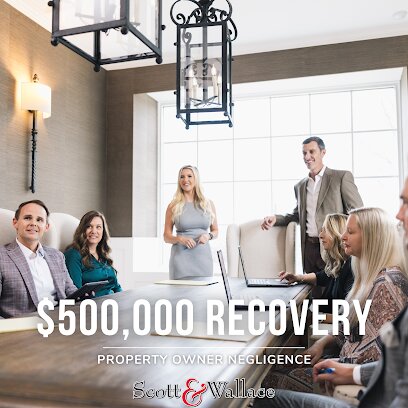Best Defamation Lawyers in Tallahassee
Share your needs with us, get contacted by law firms.
Free. Takes 2 min.
List of the best lawyers in Tallahassee, United States
About Defamation Law in Tallahassee, United States:
Defamation is a civil tort that involves making false statements about someone that harms their reputation. In Tallahassee, United States, defamation laws aim to protect individuals and businesses from untrue and damaging statements that are shared publicly.
Why You May Need a Lawyer:
You may need a lawyer for defamation cases if you have been the victim of false statements that have harmed your reputation, or if you have been accused of making defamatory statements about someone else. A lawyer can help you navigate the legal process, gather evidence, and represent your interests in court.
Local Laws Overview:
In Tallahassee, United States, defamation laws are governed by both state and federal laws. To prove defamation, you typically need to show that the statement was false, published to a third party, and caused harm to your reputation. It's important to consult with a lawyer who is familiar with defamation laws in Tallahassee to understand your rights and legal options.
Frequently Asked Questions:
1. What is the difference between slander and libel?
Slander refers to spoken false statements that harm someone's reputation, while libel refers to written false statements.
2. Can an opinion be considered defamatory?
No, opinions are generally protected under the First Amendment and are not considered defamatory.
3. Is truth a defense to defamation?
Yes, if the statement is true, it is not considered defamatory.
4. Can I sue someone for defamation on social media?
Yes, defamatory statements made on social media can be the basis for a defamation lawsuit.
5. What damages can I recover in a defamation lawsuit?
You may be able to recover damages for harm to your reputation, emotional distress, and financial losses caused by the defamatory statements.
6. How long do I have to file a defamation lawsuit in Tallahassee?
The statute of limitations for defamation lawsuits in Tallahassee typically ranges from one to two years, so it's important to act quickly.
7. Can I be held liable for sharing defamatory information from someone else?
Yes, if you share defamatory information knowing it is false or with reckless disregard for its truth, you can be held liable for defamation.
8. What should I do if I am accused of defamation?
Consult with a lawyer who specializes in defamation law in Tallahassee to understand your legal options and defenses.
9. Can public figures sue for defamation?
Public figures have a higher burden of proof in defamation cases and must show actual malice, meaning the false statements were made with knowledge of their falsity or reckless disregard for the truth.
10. How can I prove defamation in court?
To prove defamation, you typically need to show that the statement was false, published to a third party, and caused harm to your reputation. Evidence such as witness testimony, documents, and expert opinions can help support your case.
Additional Resources:
For more information on defamation laws in Tallahassee, you can contact the Florida Bar Association or seek guidance from the Florida Courts system. Additionally, consider reaching out to local legal aid organizations for assistance if you cannot afford a private attorney.
Next Steps:
If you believe you have been a victim of defamation or if you are facing allegations of defamation in Tallahassee, it's important to seek legal advice promptly. Contact a reputable defamation lawyer in Tallahassee to discuss your case and explore your legal options.
Lawzana helps you find the best lawyers and law firms in Tallahassee through a curated and pre-screened list of qualified legal professionals. Our platform offers rankings and detailed profiles of attorneys and law firms, allowing you to compare based on practice areas, including Defamation, experience, and client feedback.
Each profile includes a description of the firm's areas of practice, client reviews, team members and partners, year of establishment, spoken languages, office locations, contact information, social media presence, and any published articles or resources. Most firms on our platform speak English and are experienced in both local and international legal matters.
Get a quote from top-rated law firms in Tallahassee, United States — quickly, securely, and without unnecessary hassle.
Disclaimer:
The information provided on this page is for general informational purposes only and does not constitute legal advice. While we strive to ensure the accuracy and relevance of the content, legal information may change over time, and interpretations of the law can vary. You should always consult with a qualified legal professional for advice specific to your situation.
We disclaim all liability for actions taken or not taken based on the content of this page. If you believe any information is incorrect or outdated, please contact us, and we will review and update it where appropriate.








